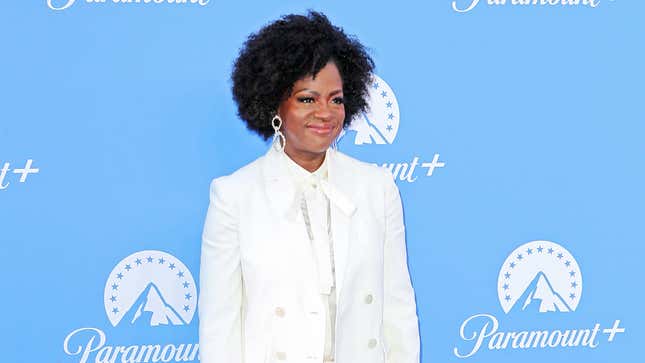Viola Davis: Getting Black Stories Told in Hollywood Is Still a Struggle
“I can’t walk into every room and get any movie made," she told the Guardian. "I actually feel pretty confident, but I can’t do that.”
Entertainment

At this point, Viola Davis is a household name. As the holder of an Academy Award, an Emmy, and two Tonys, she is the only Black actor to achieve what is known as the “triple crown of acting.” Now, with the most recent release of The Woman King, an action-packed 1800s historical epic about a group of women warriors who protect the African kingdom of Dahomey, Davis feels like she’s reached a particular peak: She told the Guardian she sees the film as “a culmination of my career over the last 33 years.”
But even with The Woman King’s overall success—one that Jezebel’s Kylie Cheung applauded for its delicate handling of sexual violence—it was an uphill battle to bring it to the big screen. The film was produced under JuVee Productions, Davis’ own company, after seven years of trying to convince others that this was a story worth telling. Davis put it this way:
-

-

-

-

-

-

-

-

-

-

-

-

-

-

-

-

-

-

-

-

-

-

-

-

-

-

-

-

-

-

-

-

-

-

-

-

-

-

-

-








































